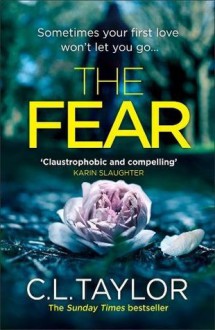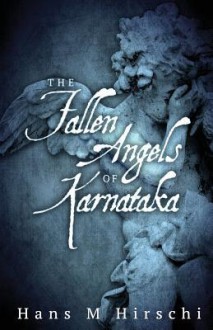
Thanks to NetGalley and to the Publishers (Avon) for offering me an ARC copy of this book that I freely chose to review.
After reading this novel, which is a page-turner and moves at a fast pace, I checked the reviews, and it is one of these odd cases when I agreed both with the positive and with the negative reviews about the book. Some of them compared it to other novels by C.L. Taylor, an author who has a big following (this novel is a bestseller Amazon UK), but as I had not read anything by her before, I cannot comment on that. But I agreed with some of the other opinions.
The novel revolves around three females, two grown women, and a thirteen-year-old girl. In fact, they are three generations, with Wendy the oldest and Chloe the youngest. We follow the points of view of the three women for most of the novel, although there is more of the story told from Lou’s point of view. Her part of the story is narrated in the first person, while the rest are in the third person, and, at least at the beginning, she is the most active of the three. Due to her father’s death she has to go back to the town where she grew up, to deal with her father’s house, and her past comes back to haunt her, both figuratively and literally, when she sees the man who had abused her (Mike) when she was a teenager and worries that he is at it again. The three women have been affected by what Mike did, and the novel is very good at focusing on the emotions of the characters, that go from love to denial, and to absolute fear. Lou’s account is interspersed with fragments from her diary as a teenager, where we get to fully understand the background of the story and how dangerous this man truly is. The combination of charm, manipulation, and his skill at picking up girls lacking in confidence and easy targets for his advances is well portrayed. The subject matter reminded me of an Australian novel I’ve really enjoyed, The Silent Kookaburra.
The subject remains as relevant (if not more) as ever, unfortunately, and this book offers a good perspective of the psychological damage such abuse can have, not only on the direct victims (that might never get over it) but also on those around them (family, wives, friends…). Should they have believed the abuser’s excuses? Are they guilty by association? What is their responsibility? The book is set in the UK and it refers specifically to changes in Criminal Law (like the introduction of the sex offenders register) but although it does not discuss those issues in detail, I don’t think that would cause difficulty to readers from other places.
The three characters fall (or have fallen) prey to Mike and find themselves in very vulnerable positions. It is impossible not to wonder what one would do faced with their dilemma, particularly that of Lou. Her impulsive actions are extreme and I agree with the readers who have commented that at times the book is over the top, although Lou’s doubts, her continuous hesitation, and her fear feel real. She is not alone in being pushed to the edge, and this is a book where characters do not play safe, rather the opposite.
The writing is fluid, and brings to life the three female characters, whose only connection is through Mike, perhaps with more immediacy in the case of Lou —this is helped by the first person narration and her diary— but it manages to make us empathise and feel for the three by the end of the story. And no, not all of them are likeable, to begin with. I know some readers worry about head-hopping, but each chapter states clearly which character’s point of view we are following and there’s no possible confusion. Although there are brief moments of relief when things seem to be about to take a turn for the better, this is only to lure us into a false sense of security, and the tension and the pressure keep increasing and so does the pace. The ending is satisfying and will have most readers cheering on.
If you’re wondering what are the negative comments I agreed with, well, I was not necessarily talking about the degree of suspension of disbelief (yes, readers will need a fair deal of this, but as we are engaged with the characters and their plight, this is not difficult to maintain), but about some anachronisms, some details that seemed incongruent to the time when the story is set. I felt that the emphasis on Facebook messages, fake accounts, hacking, etc. seemed excessive for a story set in 2007. Other readers, who decided to research in more detail, discovered that indeed, some of the things mentioned, Apps, songs, etc., were not available yet. One reader noted that she could not understand why the story wasn’t set in the present, as that would have avoided these issues, but another pointed out that some aspects of the plot would only make sense if the story was set up in the recent past (including some of the legal issues). I wonder (as a writer) if the story was originally set in the present but somebody spotted the plot issues and came up with the solution of moving it back in time (without changing some of the modern references).
This novel does a good job of creating believable characters and making readers think about the plight of the victims of paedophiles. Although it might be less satisfactory to die-hard lovers of police procedural books, I think it is difficult to read it without empathising with the female characters and having to pause to reflect on this serious issue. And the questions at the end will further engage book club readers and encourage meaningful discussion. I don’t think this will be the last novel by C.L. Taylor I’ll read and I can easily understand why she is popular. (Ah, and she calls book bloggers book fairies. I like that!)

 Log in with Facebook
Log in with Facebook 







